Federal Agency Rules Traffic Camera Enforcement Lines Illegal
The Federal Highway Administration (FHWA) last month issued an official ruling that found red light camera “violation lines” illegal. A number of jurisdictions across the country paint four-inch wide white lines on the pavement at what is known as the “prolongation” of the cross street’s curb line in order to facilitate the use of automated ticketing machines. These are not the “stop bar” or crosswalk lines that most motorists expect, but a third set of lines that appear at the very edge of the intersection.
California Cities Skirt Law With Administrative Speeding Tickets
A number of local jurisdictions in California have quietly turned to administrative citations for speeding tickets as a means of circumventing state law. The legislature had set down a very specific set of procedures for issuing and adjudicating traffic violations, including a split of the revenue for each ticket between the state, county, municipality and the court system. Cities like Newman now believe they can cut the state government out of the process.
Indiana: City Threatens $2500 Fines for Challenging Traffic Tickets
Motorists who receive minor parking or traffic tickets in Indianapolis, Indiana are being threatened with fines of up to $2500 if they attempt to take the ticket to court. A local attorney with the firm Roberts and Bishop was so outraged by what he saw in Marion County traffic court that he filed a class action suit yesterday seeking to have the practice banned as unconstitutional.
Photo Enforcement Illegal In South Carolina
Earlier this year the South Carolina General Assembly enacted a law that will make it even more difficult for red light camera and speed camera vendors to attempt to do business in the state. Under a provision that took effect on April 9, police are authorized to replace traditional handwritten citations with “electronic traffic tickets” designed to speed the roadside ticketing process. These electronic citations, however, cannot be used as part of a photo enforcement system.
Dorset, UK Speed Camera Destroyed by Fire
Second Texas City Initiates Traffic Camera Referendum
Inspired by the success of the College Station, Texas initiative banning red light cameras, activists a hundred miles away in are collecting signatures to do the same in Baytown. Officials in the Gulf Coast city of 72,000 allowed American Traffic Solutions to set up the cameras in April 2008, but resident Byron Schirmbeck is circulating a petition in the hopes of giving voters the opportunity to take them back down. “The response has been absolutely overwhelming,” Schirmbeck told TheNewspaper. “I am conservative in saying that I have had less than ten percent of people I asked at public places refuse to sign because they support the cameras. The usual response to the question, ‘Would you like to sign the petition to ban the red light cameras?’ is ‘Hell yes’ and ‘Can I get my wife to sign it too?'”
European Union Creates International Speeding Ticket
Speeding tickets are beginning to cross international borders in Europe, thanks to the European car and driving license information system, or EUCARIS. At the beginning of the year, Swiss motorists began being charged for speed camera tickets issued by French authorities. As of October, the French government had collected on a total of 10,000 citations from violations allegedly committed by vehicles registered in Switzerland. A total of 1800 tickets were issued last month alone.
Texas: Red Light Camera Company Blocks Referendum
A lawsuit funded by a photo enforcement company succeeded yesterday in temporarily blocking the results of the vote to end red light cameras in College Station, Texas. Judge Suzanne Stovall granted a temporary restraining order preventing the city from ending its contract with American Traffic Solutions, despite the November 3 vote of a majority of residents demanding that the cameras come down. The law firm of Bovey, Akers and Bojorquez ostensibly filed the lawsuit on behalf of the Keep College Station Safe Political Action Committee (PAC), a group entirely funded by College Station’s camera vendor, American Traffic Solutions (ATS) and its subcontractors. Of the PAC’s $67,100 in reported funding, the largest chunk — $30,000 — came directly from ATS. Garry Mauro, a paid ATS consultant, gave $5000. Another $8000 came from Signal Electric, a Washington-based contractor that installs red light cameras for ATS. ForceCon Services, a Texas-based red light camera installation subcontractor, gave $5000. Questmark Information Management Inc, a company that prints citations for ATS, provided a $16,600 in-kind donation.
Rhode Island Governor Vetoes E-ZPass Privacy Bill
Rhode Island Governor Donald Carcieri (R) on Monday vetoed legislation that would have imposed privacy restrictions on the use of E-ZPass toll transponder data. The scuttled bill also included a ban on schools and government agencies from using the same Radio Frequency Identification (RFID) transponder chips to track schoolchildren. Carcieri focused on the positive aspects of tracking children in his veto message. “Why would the General Assembly therefore place restrictions on the use of this technology as an option for all students?” Carcieri wrote. “In certain circumstances, it may be helpful for schools to have the ability to quickly identify where each of their students is located… Such circumstances may include weather-related natural disasters, terrorist or criminal events or even a need for use during field trips and outside school activities.”
Colorado: Voters Reject Mandatory Vehicle Confiscation
Voters in Denver, Colorado last Tuesday overwhelmingly rejected a ballot measure that would have forced police to impound cars whenever a driver failed to produce a driver’s license. The measure was designed to expand a 2008 impound ordinance in a way that would have increased pressure on illegal immigrants. “They are responsible for about half of the fatal accidents and, of course, they are uninsured,” initiative sponsor Daniel Hayes argued. “Illegal aliens, like all unlicensed drivers, will be towed just as a domestic driver under suspension or revocation.”
German Court Questions Laser Speed Camera Accuracy
A German court last month overturned a traffic citation after prosecutors failed to prove the accuracy of a new laser-based speed camera technology. The district court of Dillenburg heard testimony from four experts, each of whom cast doubt on the system. The judge concluded that the motorist accused by a Poliscan automated ticketing machine of driving 96km/h (60 MPH) in a 40 (25 MPH) zone was not guilty.
Maryland: Politicians, Judges, Bureaucrats Drive Toll Free
Among the 15,000 Maryland state employees who drive on area toll roads without paying are judges, lawmakers and powerful bureaucrats. The Maryland Politics Watch website used a freedom of information request in August to discover that 128 of 188 legislators took advantage of a perquisite giving officials a scrutiny and bill-free E-ZPass transponder—despite already receiving a $600 yearly travel expense allowance from taxpayers. After being exposed, the General Assembly leadership moved to limit the fallout by abruptly canceling the program on September 25.
Florida: Early Data Suggest City Traffic Cameras Ineffective
An early look at the performance of the red light cameras in Temple Terrace, Florida shows that they have done nothing to improve safety. Instead of merely repeating city claims on the topic, investigative reporters for the Tampa station WFTS ordered accident reports and checked the data for themselves. Although the program has been operational for a year, police only released enough data to produce a limited snapshot of the effect on accidents. Over the first five months of the program, accidents decreased citywide by 13 percent compared to the same period a year earlier without cameras. At intersections with cameras, however, the number of accidents more than doubled from six to fourteen. Contrary to claims that red light cameras decrease accident severity, the average police estimate of damage costs for each accident increased by twenty percent after cameras were installed.
California Toll Road: Penalties Were Unconstitutional
California motorists hit with massive fines for minor, alleged toll infractions won a settlement last month from the Orange County Transportation Agency (OCTA) and Transportation Corridor Agency (TCA). The toll road operating entities agreed to pay $1.4 million in restitution and waive $41 million in unpaid toll penalties after admitting the fines were “excessive” and that the denial of due process to the accused was “unconstitutional.” Over a dozen motorists sued in 2007 claiming that fines of up to $123,000 for skipping tolls were outrageous. In several cases, such as that of Stephanie and Brian Young, the violations were inadvertent. The couple racked up $580 in unpaid tolls in 2003 after the credit card linked to their toll transponder account expired. For this mistake, OCTA demanded that they pay $53,550 in fines. Similarly, Maria and Pablo Gonzalez allegedly failed to pay $60.14 in tolls and were billed $78,780.
Texas, Ohio: Voters Reject Photo Enforcement
Voters in three cities sent a clear message to local lawmakers yesterday by adopting charter amendments that ban photo enforcement. In addition to kicking two camera supporters from the city council, 72 percent of those voting in Chillicothe, Ohio approved a total prohibition on the use of red light cameras and speed cameras. In College Station, Texas the vote was much closer, but at the end of the night 52 percent wanted the red light cameras to come down. In Heath, Ohio 51 percent voted against the cameras. A total of nine cities nationwide have used the initiative process to ban camera enforcement since 1991, with camera proponents never having won a public vote.
Maryland Cities Create School Zones for Speed Camera Use
Maryland cities will create brand new “school zones” in an attempt to issue speed camera tickets on roads that previously had no need of the designation. When the state legislature authorized speed cameras six months ago in response to a $690,506 lobbying campaign from photo ticketing and insurance companies, lawmakers mandated that the cameras could only be used within a half mile of a school zone. Baltimore is among the first to admit that it will bypass that restriction. “You asked if the locations for speed cameras were all pre-existing school zones,” Baltimore engineer Rainna P. Strauss wrote in an email exchange obtained by the StopBigBrotherMD.org website. “No they were not.”
Italy: Speed Camera Accuses Motorcyclist of 383 MPH Blast
According to a speed camera citation that landed in his mailbox on October 10, motorcyclist Paolo Turina blasted past a speed camera at 616km/h (383 MPH). Last month, Turina had been riding his Moto Guzzi motorcycle in the municipality of Cernusco Lombardone in Lombardy when a Telelaser Ultralyte device recorded him passing by. The letter from the municipal police suggested that Turina had exceeded the fastest recorded MotoGP race speed of 217 MPH, set in June by Dani Pedrosa at the Mugello, Italy, by 166 MPH. Municipal police admitted the speed may have been printed on the ticket in error, but that the citation itself was valid.
MA Gov. Patrick: Lower State Deficit With Red Light Camera Revenue
Massachusetts Governor Deval Patrick (D) on Thursday outlined his plan to reduce the state’s $600 million deficit and help struggling municipalities by, among several other revenue raising measures, installing red light cameras. The governor’s proposed fiscal year 2010 budget amendments would eliminate an existing state law forcing police officers to issue traffic citations personally. Under the new legislation, any jurisdiction in the commonwealth could give private, for-profit companies the right to issue $100 traffic tickets.
Kodak, IBM, Xerox, Goldman Sachs: Corporate America Big in Photo Enforcement
Some of America’s most recognized corporations are growing increasingly involved in providing equipment and services to the automated ticketing industry. In many cases, these Fortune 500 firms play a behind-the-scenes role, without actively seeking publicity for their connections to controversial programs. Imaging giant Kodak did announce that it would be demonstrating a new CCD image sensor at a trade show in Germany on Tuesday. This sensor was specifically designed to work in red light camera and speed camera applications. The company claims the unit doubles light sensitivity, allowing a substantial increase in the number of tickets that can be issued in bad weather conditions.
TN Mechanic Creates His Own Stimulus Package
What's Wrong With This Picture?: The Company You Keep Edition
Redflex Battles Anti-Speed Camera Votes in Ohio
As Redflex Traffic Systems fights a shareholder revolt at home in Australia, the speed camera vendor is simultaneously battling a public revolt against photo ticketing in two Ohio cities. Next Tuesday residents of Chillicothe and Heath will have the opportunity to vote on citizen-led initiatives that would ban the use of red light cameras and speed cameras. Redflex has poured substantial cash into an advertising blitz covering both towns. “Vote NO on Issue 5 and keep Heath safe,” read a Redflex brochure sent to Heath voters this week. “In the last four months alone, at enforced intersections in Heath… red light running has reduced by almost half… 90 percent of speeders are not Heath residents.”
Quote of the Day: Send in the Clones?
Texas Red Light Camera Program Offers No Appeal to Citations
In the state of Texas, the right to a meaningful appeal in a red light camera case does not exist. While several states have allowed photo enforcement tickets to be appealed to the highest level — Minnesota’s highest court ruled on a photo ticket in 2007 and a red light camera case is currently pending before the California Supreme Court — several Texas municipalities are using an ambiguity in state law to deny challenges beyond the lowest level of the court system. “Under the current red light ordinance there is no right to appeal beyond municipal court,” College Station Municipal Court assistant Wanda Lapham wrote in a letter to Jim Ash ( view letter).
Utah DOT: No Downside to 80 MPH Speed Limit Increase
The Utah Department of Transportation (UDOT) announced last week that the experimental increase in the state’s maximum speed limit to 80 MPH has been a success in terms of safety. UDOT Deputy Director Carlos Braceras testified before the state Interim Committee on Transportation that that there has been no increase in accidents as a result of the higher number printed on the speed limit signs on certain stretches of Interstate 15. In 2008, the state legislature granted UDOT permission to test higher limits on rural sections of the road. Using crash histories, engineering studies, UDOT carefully selected the areas that it believed would best handle the increased limit. The department then conducted before and after surveys of speeds and traffic volume on the three sections where the limit was changed. Although the signs permitted another 5 MPH in speed, the results showed that drivers did not ‘take advantage’ of the new limit to drive significantly faster.
Texas: College Station Uses Public Funds to Influence Anti-Camera Referendum
Officials in College Station, Texas used $20,000 in taxpayer funds in an attempt to influence residents to vote against a referendum that would ban red light cameras from the city. The city mailed to every voter a multi-color, bilingual brochure entitled “Red Light Cameras: Voter Education” in the hopes of convincing them to support a program that generated $905,688 in revenue for fiscal 2009. “A petition was filed by a citizens’ group asking the city council to let voters decide whether to keep or eliminate the red light camera system,” the brochure explained. “This item will be on the November 3 ballot.”
Ohio Supreme Court Clears Anti-Speed Camera Referendum for Vote
Chillicothe, Ohio residents will retain the right to vote out speed cameras on November 3, thanks to a Ohio Supreme Court ruling yesterday. Fearing the public would shut down his signature program, Chillicothe Mayor Joseph Sulzer had asked the high court for an emergency injunction blocking the citizen-led initiative. Sulzer argued that this step was needed because the proposed initiative was unconstitutional and the city was denied a fair chance to argue against it before the Ross County Board of Elections ( view Sulzer’s court filing). The supreme court justices unanimously rejected his complaint.
Canada: Cameras Increased Accidents; Grande Prairie Wants More
Accidents increased significantly at intersections equipped with red light cameras in Grande Prairie, Canada according to a city report completed last month. The review found that after a full year of use, cameras generated $1.2 million in revenue along with a 126 percent increase in injury collisions. “Since the installation of red light cameras in Grande Prairie, the City has issued over 6000 violation tickets since the program was initiated,” red light camera Program Manager Garry Roth wrote in his report. “There have not been significant reductions in collisions, while only a few of these collisions during this time frame, have actually resulted from a red light violation.”
Canada: Privacy Commissioner Concerned Over License Plate Spying
The Office of the Privacy Commissioner of Canada expressed concern last week over the growing police use of technology to spy on motorists. In a letter to the Nanaimo Daily News, Assistant Privacy Commissioner Chantal Bernier emphasized that the Royal Canadian Mounted Police had not received the commissioner’s approval for the agency’s use of license plate recognition devices. Known as ANPR in the UK and ALPR in North America, these cameras use a combination of electronic databases, cameras and optical character recognition software to identify each passing vehicle. Over time, the devices create a searchable log containing the exact time and date that each automobile passed a given location.
UK: London Mayor Backtracks on Congestion Tax
London, England Mayor Boris Johnson is retreating from his campaign pledge to end the city’s “punishment of motorists.” Johnson’s predecessor, Ken Livingstone, lost his re-election in large measure because Johnson pledged to scale back the £8 (US $13) fee imposed on motorists entering the downtown area. Johnson announced Friday that he will boost the tax to £10 (US $16.40) to shore up Transport for London’s mass transit budget. “The proposed increase in the charge will ensure that the system remains effective in controlling traffic levels in central London, and the revenue will also help us fund the vital improvements to London’s transport network that all Londoners want to see,” Johnson said in a statement.
California: Right Turn Camera Makes $1 Million a Month
A single red light camera in Riverside, California issued $1 million worth of right-hand turn on red tickets in just one month. The automated ticketing machine installed in March at Tyler Street at the entrance to the 91 Freeway has become the most productive of the city’s cameras and now accounts for half of the citations issued by Riverside’s vendor, Redflex Traffic Systems of Australia. The camera helped boost the grand total of citations mailed since January 2007 to 82,448 tickets worth $32,532,203.
California Appellate Court Refuses to Publish Anti-Camera Decision
A California appellate court on Wednesday declined to publish a decision overturning a ticket issued by an unlawful red light camera operation ( view ruling). California Superior Court, San Mateo County Appellate Judge Mark R. Forcum turned down attorney Frank Iwama’s request that he explain his reasoning more fully in a published decision. Unpublished cases cannot be cited as precedent in California, and motorists interested in challenging citations will have to repeat from scratch all arguments about the program’s illegality.
Shareholders Battle for Control of Speed Camera Colossus (Redflex)
The number one operator of photo enforcement in the US, Redflex Traffic Systems, engaged in a public battle of words with its three largest shareholders this week. Thorney Holdings Ltd, Hunter Hall and Renaissance joined to force a shareholder vote to remove Redflex Chairman Chris Cooper and Directors Peter Lewinsky and Roger Sawley. The renegade investors, who hold 28 percent of the company stock, are upset with the mismanagement exemplified in the Redflex stock price and the “expensive failure” of the Arizona freeway photo radar contract. “We are concerned whether the present board is appropriately qualified, experienced and competent to manage Redflex’s affairs,” Thorney Holdings stated in a letter to shareholders Wednesday. “Due to what we perceive to be a lack of transparency in Redflex’s process for director appointments, we are concerned about the absence of information on these issues.”
Canada: Motorists Protest Illegal Work Zone Photo Radar
Officials in Winnipeg, Canada were caught this weekend defying a court ruling that outlawed the use of photo radar in work zones when workers are not present. A group of residents organized by the group WiseUp Winnipeg have decided to fight back, first by recording the automated ticketing van as it operated in a Route 90 “construction zone” on October 10 at 3:30pm with no workers in sight.
Las Vegas Cops To Slow The Bleep Down
The Las Vegas Review Journal reports that “Last year, more police in America died in traffic crashes, 44, than from gunshots, 39, according to the National Law Enforcement Memorial Fund, which tracks officer deaths. That trend has continued through the first half of this year, with traffic deaths outpacing shooting deaths 35 to 22. For the 12th year in a row, traffic-related incidents remain the leading cause of death for law enforcement officers.” The obvious if highly ironic answer: slow down. “In the past year, the Dallas Police Department and the Illinois State Police revamped their driving policies to include limits on how fast their officers can drive. Both moves were prompted by officer-caused crashes that killed civilians. The Metropolitan Police Department could soon follow suit once it completes a review of its driving policies that was ordered by Sheriff Doug Gillespie when officer James Manor, 28, died in a crash in May. Manor, who was responding to a domestic dispute call, was driving at a speed of 109 mph without lights and sirens on Flamingo Road when a pickup turned into his path. He was not wearing a seat belt and died a short time after the crash. Police have not released details of Wednesday’s deadly crash as they continue their investigation, but it appears that speed was a factor.”
Michigan: Senate Considers Legalizing Fuzzy Dice
A Michigan state Senate committee voted unanimously to advance legislation that would legalize the hanging of fuzzy dice and air fresheners from rearview mirrors. State Senator Ron Jelinek (R-Three Oaks) introduced Senate Bill 276 to repeal the statute that allows police to pull over motorists using objects dangling from a mirror as a pretext. Existing law makes driving with a “dangling ornament” punishable by a $100 fine and up to ninety days imprisonment.
Speed Cameras Attacked in Finland, Poland and Wales
An anonymous vigilante in Rovaniemi, Finland destroyed a speed camera with military-grade explosives on Wednesday. Video of the assault uploaded to YouTube showed the remote detonation of a 700g charge cleanly blew the head off an automated ticketing machine on a deserted road (watch video below). The assault appears to be the most professionally executed attack recorded on tape. In 2006, a British man used thermite to damage what he thought was a speed camera, but turned out to be a police surveillance device.
More Canadian Outrage: Trucker Fined For "Workplace Smoking"
And there I was, thinking Canadians represented the sensible third of the North American continent. And then they go and blow it all by saying something stupid like “You’re nicked, mate!” Do Canadians say that? Do they call their cops “the plod?” Anyway, The Globe and Mail reports “an Ontario Provincial Police officer noticed the driver of a tractor trailer [not shown] was smoking a cigarette as he pulled up alongside the vehicle on Highway 401 outside Windsor . . . The policeman charged the 48-year-old trucker, who is from London, under the Smoke-Free Ontario Act, which prohibits smoking in enclosed workplaces and public places.” As we like to say here in The Land of the Free, that’s some fucked-up shit. No, really. “Constable Shawna Coulter, a spokeswoman for Essex County OPP, said it is the job of police to enforce the law, no matter how unpopular. She also noted that smoking while driving is unsafe.” The trucking company’s defense is even less credible—and more convoluted.
Florida May Put Loud Stereo Tickets on Driving Record
A member of the Florida House of Representatives wants to make driving with a loud stereo a crime on the same level as driving with an open container of alcohol. State Representative D. Alan Hays (R-Umatilla) last month introduced House Bill 137 which modifies an existing loud stereo statute to double the cost of fines and make the offense a moving violation. Current Florida law makes it unlawful to drive with a stereo “plainly audible” from twenty-five feet away or that is “louder than necessary for the convenient hearing by persons inside the vehicle” when driving past a church, school or hospital. Law enforcement officers are exempt as are politicians who use loud soundmaking devices for “political purposes.” The typical fine is $78 with no points.
Arizona: Witnesses Blame Accident on Speed Camera
The panicked reaction that some drivers have to the sight of a speed camera may in fact be a significant cause of accidents. The group CameraFraud.com yesterday released an Arizona Department of Public Safety (DPS) accident report that describes a July 25 incident in which a gray Chevy Camaro collided with a red 1994 Toyota 4Runner SUV on Interstate 17 in Yavapai County, sending two people to the hospital. Although DPS maintains that it hired an Australian company, Redflex Traffic Systems, to operate speed cameras to improve safety, the department’s own report tells a far different story. “All the witnesses reported seeing the gray passenger car lose control of the vehicle as it passed the photo radar van, and was apparently trying to slow down for the photo radar van,” the police report explained.
Texas: ATS Behind Anti-Red Light Camera Referendum Group
Insiders are bankrolling the lone group that supports red light cameras in College Station, Texas. Last month, the Keep College Station Safe Political Action Committee (PAC) formed “to give a voice to local residents who support the significant safety benefits of the city’s red-light camera program.” Financial disclosure reports filed on Monday show that no College Station resident has actually supported the effort. The PAC reported collecting $19,000 in political donations, of which $10,000 was provided by ATS. Another $6,500 was provided as an in-kind donation from Questmark Information Management Inc, a company that holds a contract for printing toll road statements and tickets for Harris County. ATS happens to run the cameras that generate the citations for Harris County toll roads. The only other contribution listed was a $2500 contribution from a Houston firm, REM Services, Inc.
UK: Tory Government Will Keep Speed Cameras
The UK Conservative Party, widely expected to replace the Labour government at the next general election, yesterday announced that it would continue issuing two million speed camera tickets each year. Shadow Secretary of State for Transport Theresa Villiers announced plans to tweak the current photo enforcement system while rejecting calls to scrap the devices altogether. “It’s time to put a stop to Labour’s cash cow camera culture,” Villiers said in a speech to the Conservative Party convention. “Ladies and gentlemen, a Conservative government would not fund any new fixed speed cameras because they are not the best way to make our roads safer.”
Canada Contemplates Random Breath Tests
CBC News reports that Canada’s federal Justice Minister Rob Nicholson brought some glad tidings to a recent meeting of Mothers Against Drunk Driving. According to Mothers Against Drunk Driving (MADD) chief executive Andrew Murie, Nicholson promised to consider legalizing random breath tests for Canadian motorists. Surprisingly (at least to me), this is not news. “In June, a House of Commons parliamentary committee recommended changing the legislation to allow for random testing, arguing it is an effective deterrent. The change would also bring Canada in line with a number of other countries in Europe and countries like Australia, which have adopted similar measures.” Hey, if you’ve done nothing wrong, you’ve got nothing to fear right? I mean, if a police state saves ONE CHILD, it’s worth it. And MADD reckons it could save HUNDREDS of poor innocent children from the murderous hands of drunk drivers. “Murie said [random breath tests] biggest selling point is that it improves road safety, with drunk driving fatalities dropping 36 per cent in Australia after legislation was introduced, and 23 per cent in Ireland when it made the change.”
Ohio: Supreme Court Criminalizes Breathalyzer Refusal
The Supreme Court of Ohio last Wednesday voted 4-3 to impose criminal sanctions for the first time on a motorist exercising his right to refuse to submit to warrant-less testing after being accused of driving under the influence of alcohol (DUI). Until recently, the only sanction imposed for such refusal was administrative. The decision came down in the case of Union County resident Corey Hoover who had been pulled over by Deputy Kelly S. Nawman on September 8, 2006. Nawman testified that Hoover’s tire crossed over the center line of the road, that he smelled of alcohol and that he performed poorly on field sobriety tests. Nawman arrested Hoover and asked him to perform a breathalyzer test at the sheriff’s office. Hoover refused.
Hawaii: Supreme Court Questions Laser Gun Accuracy
On Wednesday, the Hawaii Supreme Court overturned a speeding conviction because the state failed to prove that its laser speed guns were functioning properly. On September 5, 2007, Honolulu Police Officer Jeremy Franks stopped motorist Abiye Assaye, accusing him of driving 90 MPH on the H-1 freeway. Because the charge of driving 35 MPH over the limit carried the possibility of jail time, Assaye was represented by a public defender. At trial, Officer Franks gave the familiar and well-rehearsed testimony about how he had been properly trained in the use of the LTI 20-20 Ultralyte speed gun and how, in great detail, the device’s self-test had been performed. As soon as Franks concluded that his lidar gun was “functional,” Deputy Public Defender Summer M. M. Kupau objected that the state had laid no foundation establishing the accuracy or proper maintenance of the device.
CA: Appellate Court Strikes Down Red Light Camera Program
A second appellate ruling has struck down a California city’s red light camera program as illegal. On September 22, the California Superior Court for the County of San Mateo, Appellate Department overturned motorist Al Bullock’s $387 conviction for making a right turn on red. Presiding Judge Mark R. Forcum concisely found that San Mateo’s cost neutral contract with an Australian company, Redflex Traffic Systems, was in direct violation of state law. “Reversed,” Forcum wrote in a one-word decision.
IL: Driver Convicted Of Speeding Without Receiving Ticket
The Beacon News in Illinois has another story of ticket camera bureaucracy causing problems for motorists. Here’s an excerpt:
Unsure why the Kane County Circuit Clerk would send him anything in the mail, Ernie Bolen assumed he’d been summoned for jury duty.
Needless to say, a letter stating he owed $375 for speeding in an Interstate 88 construction zone came as a surprise to 43-year-old Bolen, who says he never saw a ticket or anything notifying him of a court appearance.
“I haven’t seen it,” the Montgomery man said of a citation. “I was like, what the heck is this.”
Court records show the ticket was generated by a tollway construction zone speed camera on May 5. A June 19 court date was scheduled. Bolen, who says he never received any notice of a court date, received a judgement against him and the fines were assessed.
Maryland Deploys Speed Cameras on Interstate Highways
Maryland officials wasted no time in kicking off the required warning period for the statewide interstate highway speed camera program authorized by a law that took effect yesterday. Transportation Secretary Beverley K. Swaim-Staley announced that the first three locations for the cameras would target motorists in so-called work zones on some of the most heavily traveled interstates in the country. Starting November 1, privately owned speed camera vans will issue actual tickets to commuters and travelers headed between New York and Florida. For example, on an average day 184,152 drivers will pass the new speed camera location on I-95 between MD 198 and MD 216 in Prince George’s County. The Baltimore County I-95 location, between I-895 and White Marsh Boulevard, will target 162,812 drivers daily. On Interstate 695 at Charles Street in Baltimore, the cameras will record the passing of 159,021 cars.
Ohio: Chillicothe to State Supreme Court: Stop Camera Referendum
An Ohio city is so desperate to prevent voters from having a say on the future of speed cameras that it filed a motion Monday asking the state supreme court to strip the public of its right to vote on the issue. In April, residents submitted more than double the number of signatures required to place a photo enforcement referendum on the November ballot ( view initiative text). The move so infuriated Mayor Joseph Sulzer that he challenged the ballot with the Ross County Board of Elections earlier this month. Sulzer insists the board had no right to reject this challenge. “Chillicothe seeks a writ of prohibition to prevent the board [of elections] from placing the proposed municipal initiative petition on the November 3, 2009 general election ballot,” the city’s petition states.
Xerox Becomes a Red Light Camera Company
Xerox Corporation announced yesterday that it would acquire Affiliated Computer Services (ACS) for $6.4 billion. ACS is a major, long-time player in the speed camera, red light camera, tolling and parking ticket business. Xerox, famous for its domination of the photocopying market from the 1960s to the 1980s, sees the purchase as a way to reinvent itself and dominate the business outsourcing market. “By combining Xerox’s strengths in document technology with ACS’s expertise in managing and automating work processes, we’re creating a new class of solution provider,” Xerox CEO Ursula M. Burns said in a statement. “A game-changer for Xerox, acquiring ACS helps us expand our business and benefit from stronger revenue and earnings growth.”
Spain: Government Buys More Speed Cameras
With only 524 speed cameras and growing budgetary needs, the government of Spain felt an urgent need to act. On Monday, Direccion General de Trafico (DGT) announced the purchase of an additional forty-three Autovelox 105 speed cameras from an Italian company, Saima Sicurezza, at the cost of 3,099,182 euros (US $4,552,600). The cash-strapped agency would recover the amount of money invested in these new devices by placing them on the highway and issuing just six hundred tickets for driving 8 MPH over the highway limit. This figure could be achieved in less than two days in a typical deployment.
Oklahoma: Sheriff Convicted of Stealing Cash From Motorists
An Oklahoma sheriff and his deputy were sentenced to two years and three months in jail on Tuesday for the crime of stopping and searching motorists so that they could steal their cash. An undercover federal sting operation caught McIntosh County Sheriff Terry Alan Jones, 36, and Under-sheriff Mykol Travis Brookshire, 38, red-handed. The pair were forced to resign their positions in May and plead guilty to Conspiracy Under Color of Law to Interfere with Interstate Commerce. “The court imposed the maximum permissible federal prison term, consistent with advisory federal sentencing guidelines,” United States Attorney Sheldon J. Sperling explained in a statement. “These sentences will not be subject to parole.”
Virginia: Supreme Court Restricts Search of Car Passengers
The Virginia Supreme Court on Friday ruled that police may not search vehicle passengers without a specific reason to believe that they may have committed a crime. The case began on April 19, 2006 when Suffolk police officers pulled over a car with four people on board at around 3pm. Once stopped on the side of the road, Officer J.B. Carr used his drug-sniffing dog, Xanto, to check the vehicle in question. Xanto “alerted by sitting and waiting for his reward” on the rear passenger’s side. Officer Jay Quigley ordered the vehicle’s occupants out so that the car could be thoroughly searched. Nothing was found. The police officers then proceeded to search the driver and two of the passengers. Nothing was found. Finally, passenger Travis Stacey Whitehead was searched and officers discovered two syringes and a bottle cap later identified as containing heroin residue. Whitehead was convicted of drug possession and sentenced to serve twenty-two months in jail.
Ticketed LA Driver Guilty Until Proven Innocent
A recent news report in Baton Rouge, Louisiana, gives yet another example of a red light camera ticketing an innocent driver and then leaving it up to the accused motorist to prove the ticket was undeserved. Here’s a quick overview of what happened: Troy Carter, a driver with a Louisiana license plate, received a red light camera ticket in the mail from the city of Baton Rouge. The photo showed a Blue Mercury vehicle, which was completely different from the vehicle he owned—a white GMC Yukon XL. However, both his vehicle and the Mercury shared the same license plate number. The key was that Carter’s vehicle is registered in Louisiana with Louisiana plates while the Blue Mercury is registered in Texas and has a Texas license plate. The ticket should have gone to the owner of the Blue Mercury but instead Troy Carter ended up with completely undeserved ticket out of the blue.
UK Billboards Equipped With License Plate Spy Cameras
An advertising campaign in the UK began using automated number plate recognition (ANPR) cameras to identify passing vehicles and create personalized advertisements. The motor oil giant Castrol UK Limited yesterday activated a set of five electronic billboards in London that flash an image of the exact type of Castrol-brand motor oil appropriate for the nearest vehicle. “The right oil for your car is: Castrol Magnatec 5W-30 A1,” the advertisement reads for eight seconds as a Jaguar with the license plate 1DFL drives past. The roadside digital billboards, seventeen feet wide and eight feet high, are owned by Clear Channel Outdoor. Castrol’s campaign added the license scanning technology which ties into the official UK Driver and Vehicle Licensing Agency (DVLA) database. The agency provides private registration information to just about any company willing to pay the desired fee. According to Castrol, this particular campaign does not store any information about what vehicles or drivers pass the sign.
Parked Truck Gets 45 Automated Speeding Tickets
Massachusetts Supreme Court Strikes Down Warrantless GPS Spying
The Supreme Judicial Court of Massachusetts ruled last Thursday that police officers need to obtain a warrant before using a Global Positioning Satellite (GPS) device to track a motorist. The ruling was handed down in the case of Everett H. Connolly who was convicted of cocaine trafficking after police traced his activities using a GPS device five years ago.For more than a year, police suspected that Connolly was a drug dealer and used traditional surveillance and investigative techniques to gather evidence. On August 30, 2004, state police took the next step by obtaining a warrant to place a GPS tracker on Connolly’s minivan. Using data from the device, police believed Connolly was on his way back from a drug buy in New York. On September 9, officers armed with a new search warrant arrested Connolly in Cape Cod. A search uncovered 124 grams of cocaine hidden in the vehicle.
California City Proposes to Evade California Red Light Camera Law
Since May, the red light cameras in the city of Corona, California have issued a total of 6511 citations worth $2,903,906. This money has been split between Corona, Redflex Traffic Systems of Australia, the state and Riverside County. On Wednesday, the Corona City Council discussed the possibility of cutting the state and county out of the program entirely. This would allow Corona to keep more money while giving the city a chance to claim it is lowering the pricey $446 automated ticket. “I voted for the program, but I made a mistake,” Mayor Steve Nolan said. “I didn’t ask the cost… We are killing people with the fines.”
Washington Supreme Court Upholds Forced DUI Blood Draws
Like most states, Washington uses an implied consent statute to punish anyone who refuses to submit to a breathalyzer test upon being accused of drunk driving. In a ruling last Thursday, the Washington Supreme Court upheld the right of police to use force to remove blood from a motorist even after an informed decision to refuse the test has been made. The high court argued that recent changes to the law essentially eliminated the need to seek consent when a warrant is obtained.



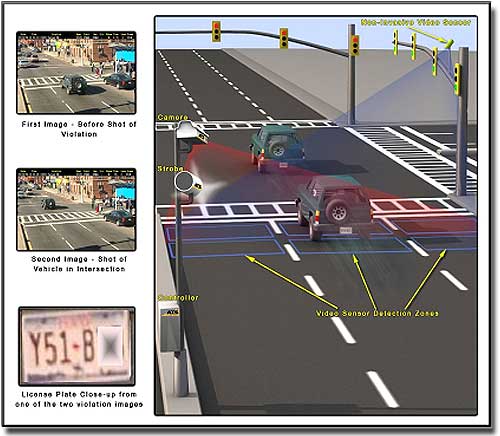

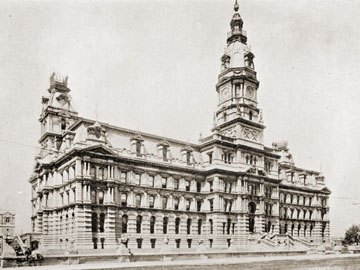
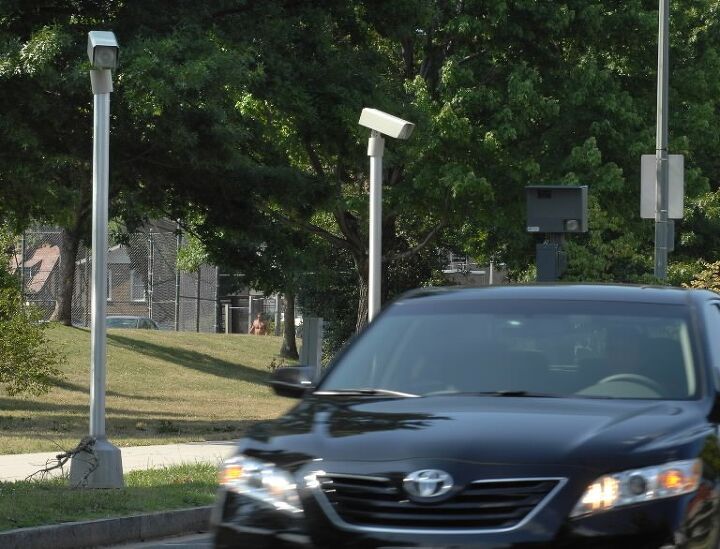





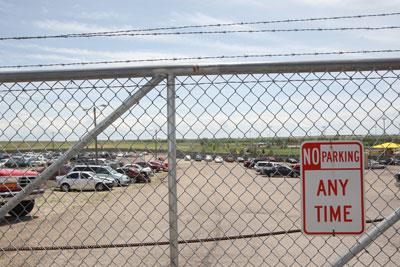
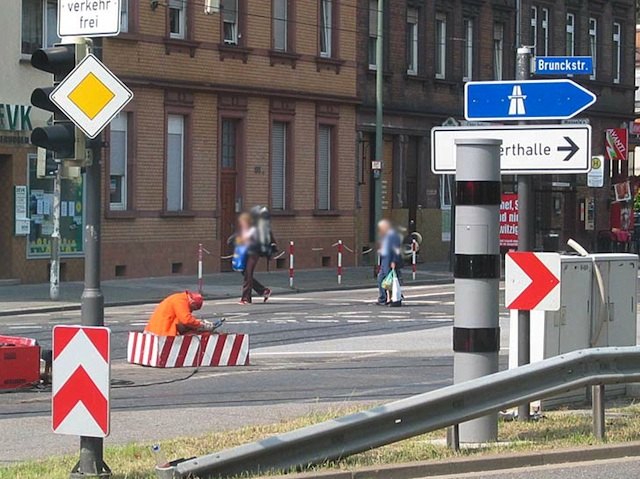
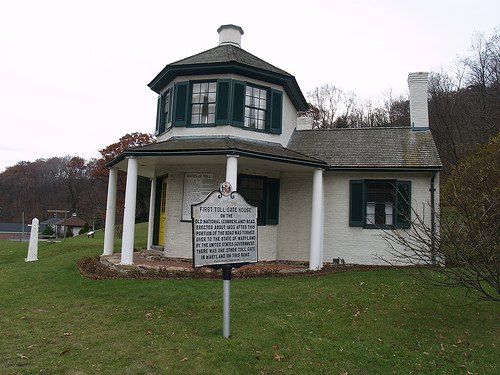
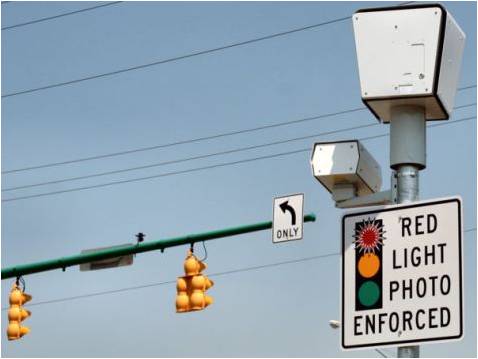
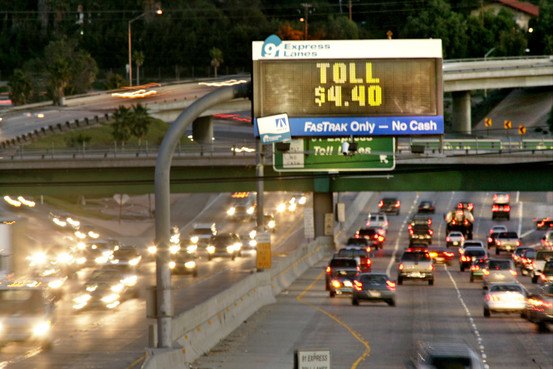
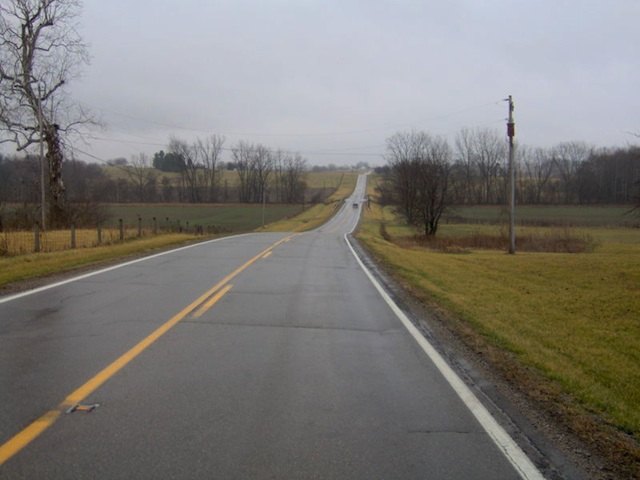
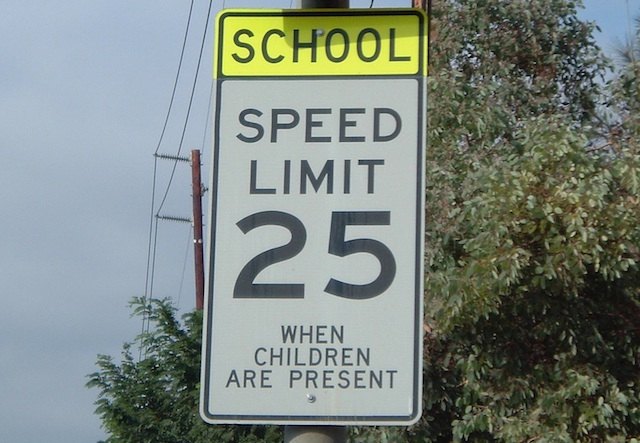



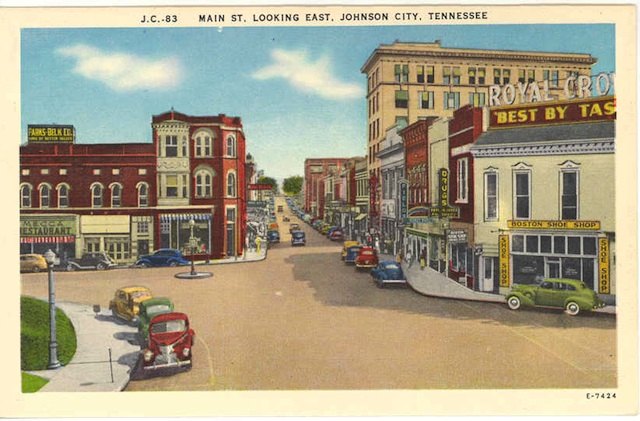

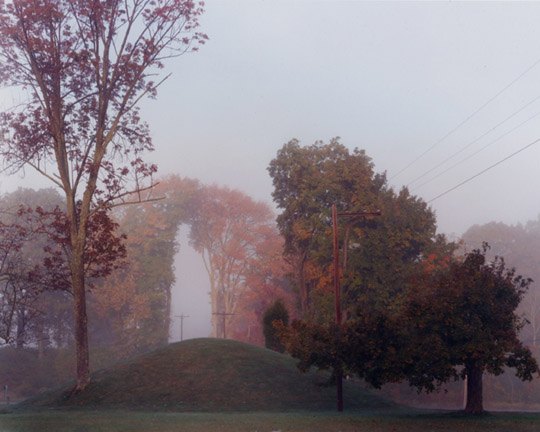


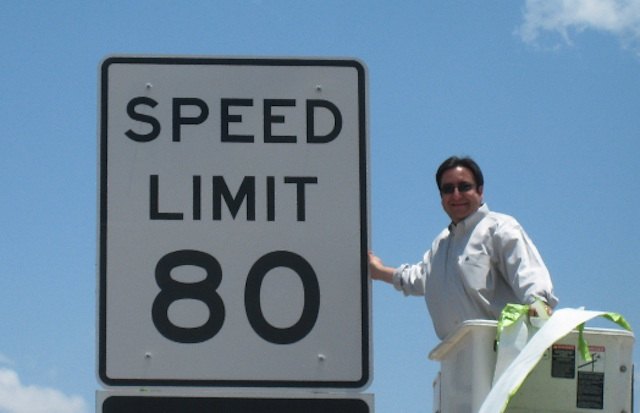


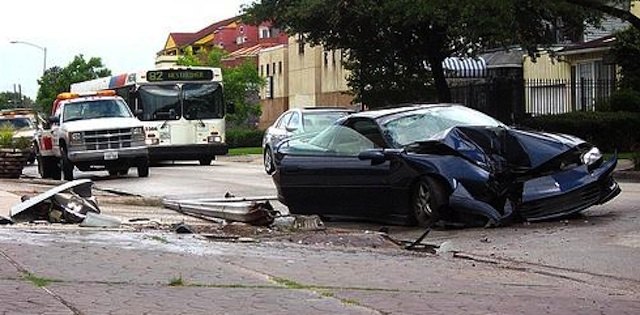


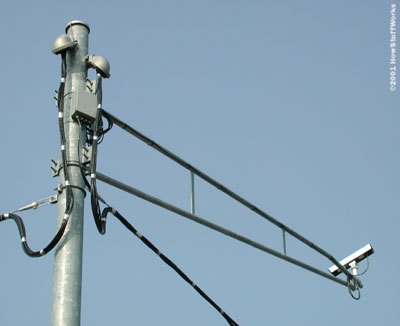

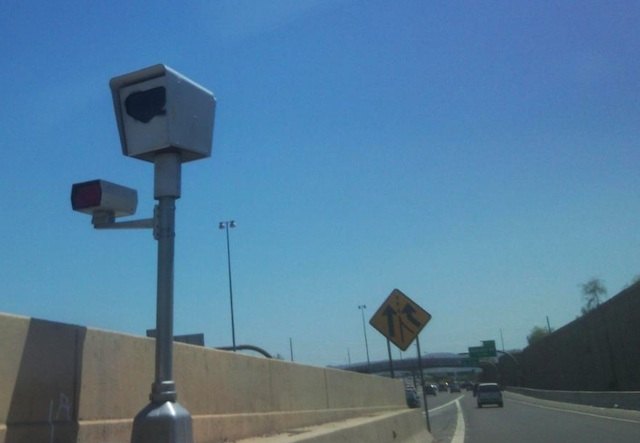

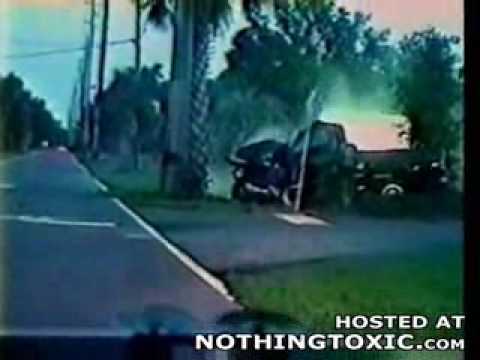

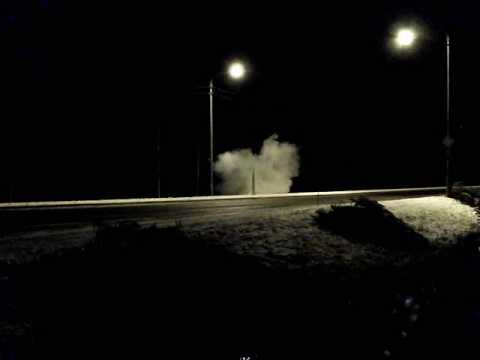

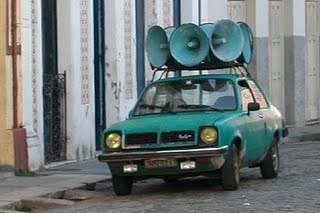



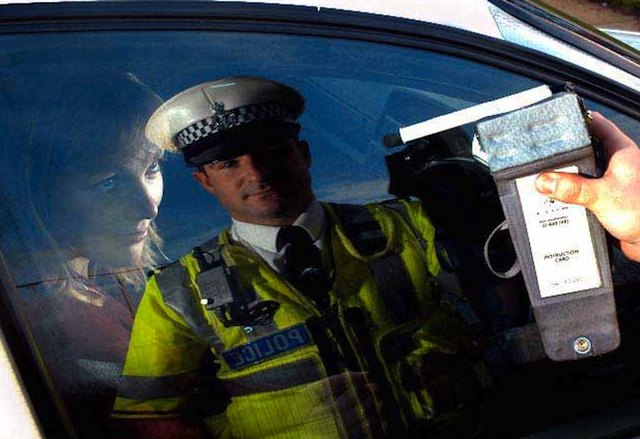

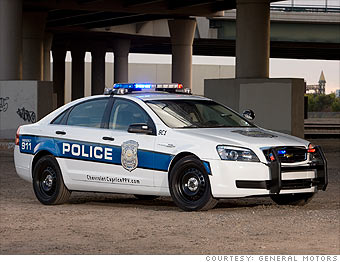
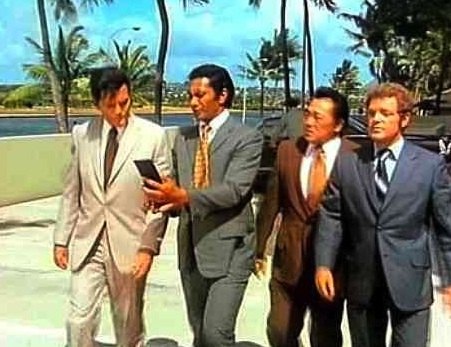
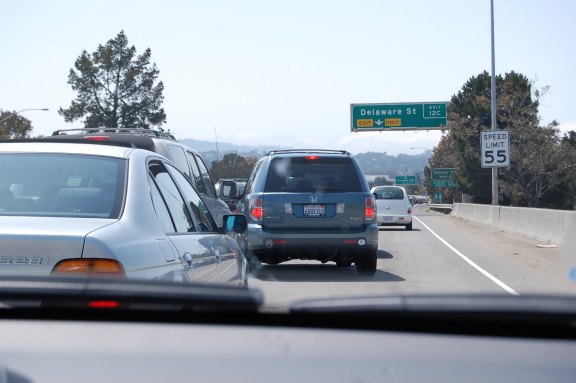



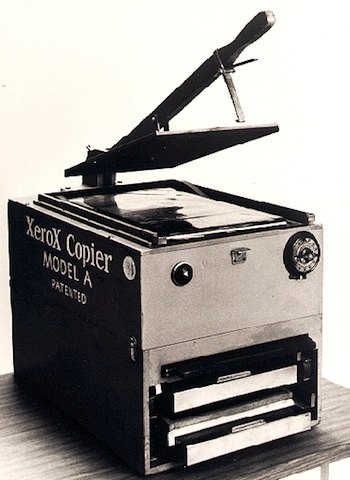
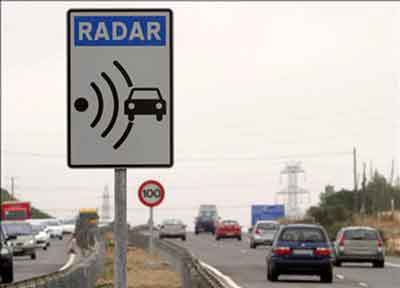

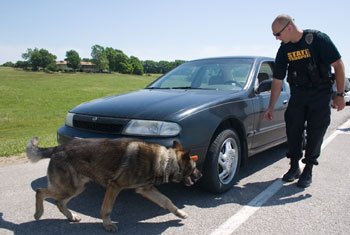

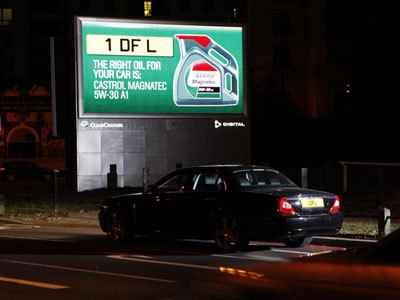


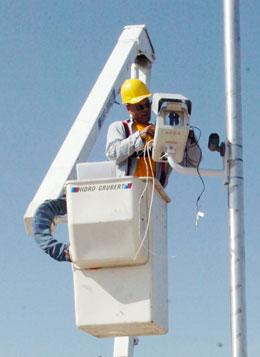













Recent Comments